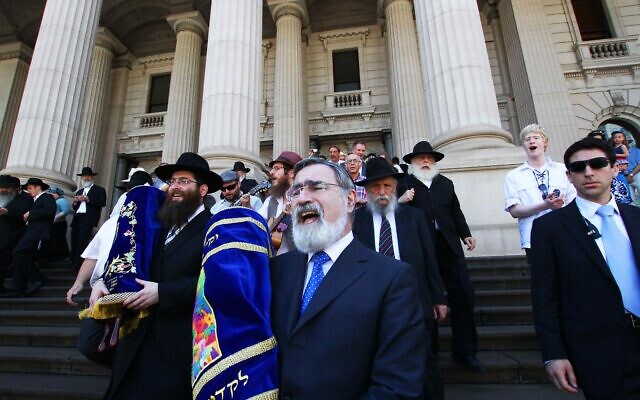‘The finest teacher of the most important lessons’
'We are fortunate that, despite this tragic and untimely loss, his writings will continue to teach his lessons for generations to come'.

IT is rare that a contemporary figure deserves to be called a “giant”, but in the case of Rabbi Jonathan Sacks, this title was wholly justified. He was an intellectual giant, an unparalleled communicator and teacher, and a mighty defender of Israel and the Jewish people. Yet precisely because he was a colossus in so many realms, it is impossible to truly encapsulate the totality of who Rabbi Sacks was. All we can do is share reflections on the part of Rabbi Sacks that each of us knew.
I was privileged to learn from him personally, as one of a small group of teenagers for whom he gave his time and taught Talmud on Sunday mornings in his synagogue office. With regret I admit that we did not then fully appreciate that we were in the presence of such a giant, but what we did know was that he was able to engage with each of us, on our level, and to convey the structure and meaning of the complex text with astonishing clarity.
Later I was blessed with opportunities to ask Rabbi Sacks for advice regarding my career. It was he who put me on the path towards teaching and for that I am eternally grateful.
For me, Rabbi Sacks’s greatness rests on three pillars.
The first was his tremendous intellect. Here was a man who could, seemingly effortlessly, amass vast knowledge of Torah, philosophy and society, and from them weave a narrative that conceptualised ideas and trends into simple, accessible, themes.
The second was his beautiful oratory and writing. Each paragraph of prose reads as poetry. Each speech was stirring, lofty, (with room for humour) and always a genuine pleasure to hear. To listen to a talk from Rabbi Sacks was to be taken on a journey of ideas and stories, from a starting point to a climactic conclusion, and to absorb every word. Complex notions were translated into simple yet meaningful language which stirred both the head and the heart.
But above all, it was his message. I believe that Rabbi Sacks saw as his mission to answer the question of our age – what relevance has Judaism in modern times? In a world which sees faith as primitive, belief as irrational, and Orthodox Jewish life as outdated, why should educated and intelligent people pay it any attention? In his later years, Rabbi Sacks extended the question further, and addressed the significance of religion in general.
And to these questions he brought answers. He showed, in article after article, book after book, the profound and authentic ideas that Judaism brought and continues to bring to the world. Analysing Biblical episodes or teaching the intricacies of Talmudic arguments, he proclaimed that these messages are vital and worthy.
As he wrote, Judaism was the first to teach that “that the world is driven by a moral purpose, that reality is not a ceaseless war of the elements, to be worshipped as gods, nor history a battle in which might is right and power is to be appeased”.
Shabbat is “the world’s greatest religious institution, a time in which there is no manipulation of nature or our fellow human beings, in which we come together in freedom and equality to create, every week, an anticipation of the messianic age”.
Those who cherish the Torah “know that God is to be found not just in natural forces but in moral meanings, in words, texts, teachings and commands”, and Jews “though they lacked all else, never ceased to value education as a sacred task, endowing the individual with dignity and depth”.
As for fighting injustice: the Jewish nation “never gave up on its commitment to helping the poor, or rescuing Jews from other lands, or fighting for justice for the oppressed, and did so without self-congratulation, because it was a mitzvah, because a Jew could do no less”.
He taught Jews to be proud; proud of these values, proud of our history, and proud to be among those who “ravaged by the worst crime ever to be committed against a people, responded by reviving a land, recovering their sovereignty, rescuing threatened Jews throughout the world, rebuilding Jerusalem, and proving themselves to be as courageous in the pursuit of peace as in defending themselves in war.”
Rabbi Sacks was the finest teacher of the most important lessons. He taught us why we should identify as Jews and why living a Jewish life is beautiful and profoundly meaningful. He taught us that our Jewish sources are wellsprings of wisdom. No one could read a Rabbi Sacks essay and continue to regard the Bible as irrelevant. No one could listen to him speak and thereafter doubt the significance of religion’s role in our world.
Rabbi Sacks was a prolific writer and has left us a vast library from which to learn. We are fortunate that, despite this tragic and untimely loss, his writings will continue to teach his lessons for generations to come.
Rabbi James Kennard is principal of Mount Scopus Memorial College.

comments